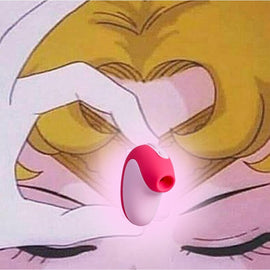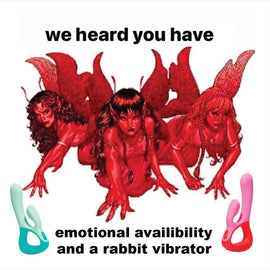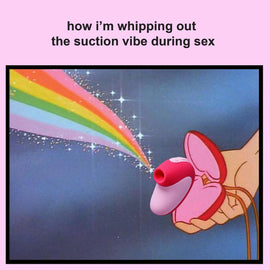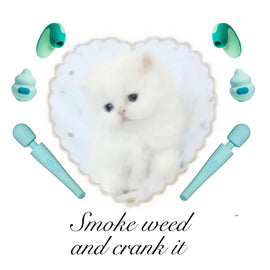Raquel Savage on Consent, Sex Ed, and Self-Care

Sex Coach Raquel Savage champions nuance. You can even tell upon first glance at her Instagram, where she complements stunning (read: BANGIN') selfies with extensive captions on topics ranging from pleasure post-trauma to creampies. Her Instagram exists as an educational resource with a style that subverts the traditional spectacle of sexual wellness and health-related content on the platform.

As a Board-Certified Sex Coach and Sex Educator, Raquel offers Sex Coaching, Trauma Coaching, and Savage Sex Ed (all of which you can learn more about on her website). We got a chance to chat with her about her work, the importance of nuance in consent, and more.
What is the best part about being a Sex Coach?
The best part of being a Sex Coach and Therapist is that I feel very lucky to help people facilitate healthier, more ethical, and reciprocal sex lives. And by sex life, I mean literally having sex, having sex with yourself, and having a better relationship with your body. As an extension of that, it’s being able to give people the space to address and confront their traumas, which undoubtedly becomes an important part of healing and moving through the world. I’m not technically responsible for all of that, but I like that I feel responsible for facilitating that space.
For my entire life, I’ve been the person that people disclose and confide in about sex stuff. When I was younger, I actually wanted to perform and be famous! The sex stuff was more of a hobby. But when I moved to Miami in 2014, I was a couple of years out of undergrad for journalism, and I remember someone said to me: “If you want to be famous, you have to have a thing.” And one day, it just clicked–my thing is sex stuff!
The next step was figuring out how I could make that professional. I went to a conservative, private, Catholic school that was “all girls” (I’m not Catholic, though). I ended up starting the first queer organization there, and I think that set a foundation for me to move forward with a plan to make my interest in sex a profession.
Do the people close to you still confide in you about sex? Has that dynamic changed at all since you started working in therapy?
As someone with a background in counseling and therapy, I have been told explicitly that we can’t provide counseling outside of our practice. I still serve as that person for my friends to confide in, but I try to draw a boundary between friendly safe space and clinical work. I do this for two reasons: I don’t want to blur the ethical boundary, and counseling is my job, so I want to get paid for it. I make sure that people respect that. However, I’m always willing to help people find resources if they’re seeking help–like, let’s figure this out together.
What are some common mistakes we make when it comes to communication with a partner?
The first thing I always teach couples is that they each need to understand their own level of self-awareness and how that will affect how they move throughout the world. In discussions around improving communication, a lot of the time we don’t put enough emphasis on how important being self-aware is.
One of the biggest mistakes people make is that we don’t take the time to figure out what we really want in the first place. So much of what we put out into the world is based on how we see ourselves, and it’s critical that we understand where these views come from and why we have them. That’s why it’s so important to have a good grasp on if and how we communicate with ourselves, first.
Another mistake we make is that we do a lot of projecting onto others, and as a result, we operate on the belief that those people can read our minds. We do this all the time instead of just being straightforward. We hold the expectation that other people operate in the same way as us. But most of the time, it’s actually not about us at all–that’s usually a liberating realization.
What conversations still need to be had around sex, pleasure, and consent?
For me, the biggest thing is that these conversations are still very black and white. They lack nuance. When I talk with anyone about consent, I focus on context. It’s clear in most of these conversations that no means no and yes means yes, but they almost never revolve around what the ‘yes or no’ actually is. For example, in certain scenarios, coercion is one person making the other feel obligated to have sex by saying things like “Oh, I thought you liked me.” We need to talk more about context and how it informs and shapes consent.

Another thing I’ve noticed is that people lack a general understanding of how power dynamics work. Every relationship has a power dynamic and that affects how we navigate sex and consent.
I think that the way most women and non-binary people engage with sex comes from a place of socialization, so we typically frame sex around pleasing others as opposed to centering and prioritizing what pleases us. Sometimes we convince ourselves that pleasing others is what pleases us and oftentimes that’s not the case. This isn’t always a bad thing–it’s just a conversation that we need to be having a lot more. I would like people who enjoy pleasing others to interrogate what that means to them. It doesn’t have to mean anything negative, but I’d like them to be curious about where that preference is coming from. It doesn’t need to be a dichotomy of what’s sex-negative and what’s sex-positive. We should ask ourselves, “What informs this particular sentiment and how did I get to this place?”

Again, I’m not saying that someone can’t enjoy being degraded or certain activities, but it’s important to think about what informs that enjoyment. I like to tell people that we can have conversations about kink that hold people accountable and still support the kink. I say all the time: it’s not either/or, it’s and/both. So I can say that what informs men cumming on women’s faces is disrespect, and as a woman, I can enjoy that behavior.
If you could require every school in the US to teach a certain course, what would it be?
1) The Psychobiology of Trauma (how trauma works within us)
2) Systems of Oppression (a basic understanding of power dynamics, how society is set up in terms of systemic oppression, and a very basic understanding of privilege, prejudice, and discrimination)
What's something you learned from growing up in a social justice family that you find especially relevant in 2019?
Autonomy was something that was driven into me very early–like, making decisions for me and understanding the consequences of those decisions. I had a family that was always like, “What choice do you want to make and what will happen because of that choice?”
I was also taught to be compassionate. My grandfather was a Methodist minister and he was all about being Christ-like. Not that I needed to be a Christian, but I needed to be Christ-like in terms of being a compassionate person, having empathy for others, and understanding that what others are experiencing in the world affects me. So these things that were taught to me as Christian values growing up have helped to inform the way I frame things now, even though I’m not a Christian. For example, it’s helped me to frame the way I think about Native issues, issues regarding ablism–things that don’t directly affect me, but I still want to dismantle.
How do you take care of yourself when you're overworked?
When I talk to people about self-care, I don’t frame it as getting your nails done and watching a movie, or something like that. Self-care is doing your good emotional work–figuring out your triggers, listening to your internal voice, working through things from your past. Self-care is really doing that emotional labor so that when you are overworked, you can go get your nails done and all that. So as an overall umbrella of self-care, I make sure I’m doing to my emotional labor.

To unwind, I love to pet my cats (Cupcake, Chance, and Spooky Black) and sniff their paws! I also love horror movies, The Office, and Game of Thrones. Most importantly, I need to be near the beach–if I can’t be near water, I’ll watch a video of it.
Visit Raquel’s Patreon page for Q&A’s, sex ed videos, and live streams (all with captions)!
Learn more about her sex coaching and trauma coaching services on her website https://www.raquelsavage.com/.
Click here to follow Raquel on Instagram.

Latest Articles

A Hot and Quick Guide to BV, UTIs, and Yeast Infections
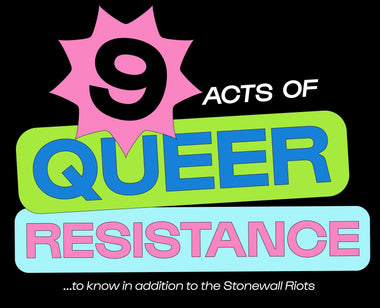
9 Acts of Queer Resistance to Know in Addition to the Stonewall Riots





